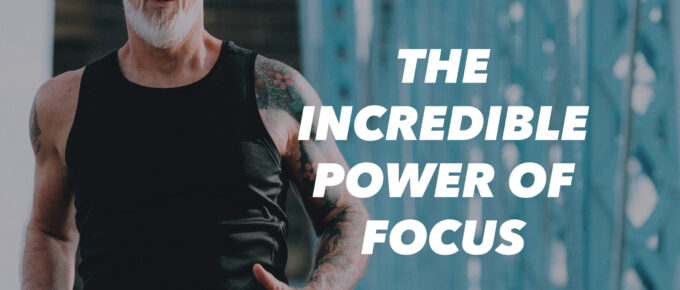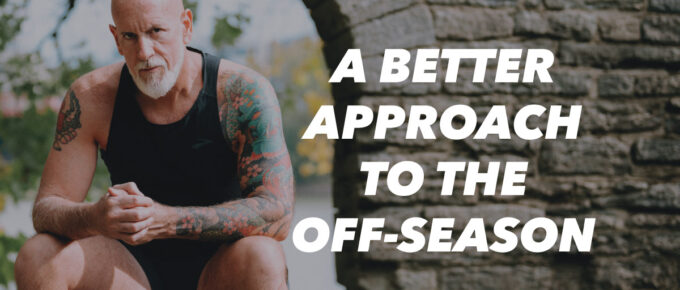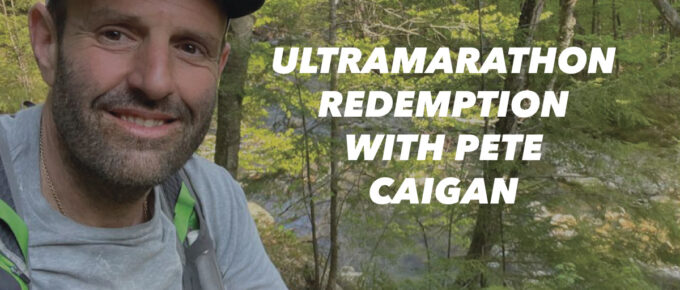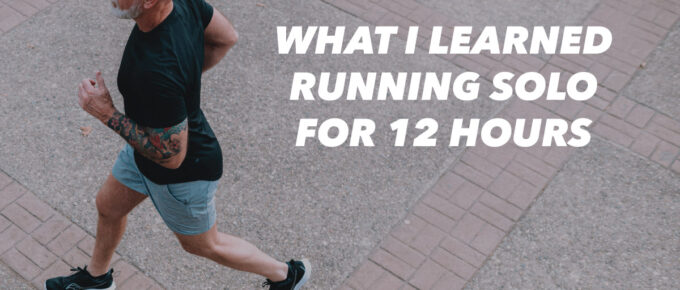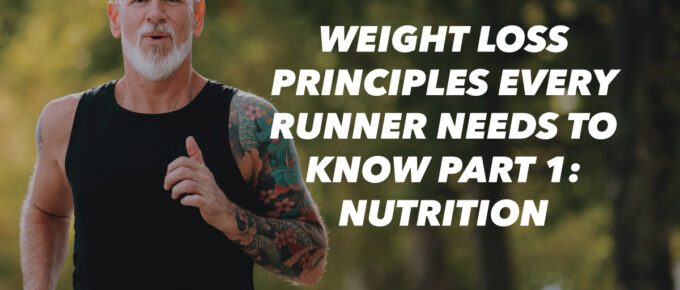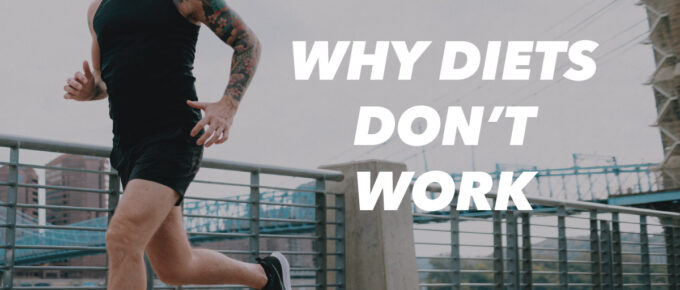A lot of people set out to lose weight and then quit. They change their diet, start exercising, and then at some point just throw up their hands and give up. This was definitely me and it was …
184. The Incredible Power of Focus
Podcast Transcript
My name is Patrick McGilvray, and I’m an experienced marathoner, ultra runner, Sports Nutritionist, Master Life Coach, and weight loss coach for runners. I’ve dedicated my life to helping runners just like you properly fuel your body and your mind. So you can get leaner, get stronger, run faster, and run longer than you ever thought possible. This is Running Lean.
Hey there, and welcome to episode 184 of Running Lean. My name is Patrick McGilvray, The Weight Loss Coach for Runners and today, The Incredible Power of Focus. So a lot of people set out to lose weight and then at some point they quit.
They changed their diet, they started exercising, and then at some point, they just throw up their hands and they give up. This was definitely me, and it was probably you at some point, I’m guessing.
And while there are a lot of reasons why someone might just give up on themselves, one of the most likely reasons is a serious lack of focus. Being focused means more than just paying attention to what’s in front of you, it can actually be the key to accomplishing all your health and fitness goals.
So in this episode, I uncover the incredible power of focus and how it can help you become the leaner, stronger, more badass runner you’ve always wanted to be. But first, I often get asked by runners who want to lose weight, how to get started, how to get started with proper nutrition, resistance training, how to get stronger how to improve their running, maybe run longer or run faster, or maybe they just want more energy, they want to improve themselves from the inside out.
I get asked this so much that I put together a free training program designed to do just that to get you started on your health and fitness journey to get you started on your weight loss journey. And it’s called Five Simple Steps To Becoming A Leaner Stronger Runner.
If you’re looking for a great place to start, this is it. It’s an on demand video training. So you can go through it at your own pace, whenever it’s convenient for you, you’ll learn what it means to eat real food, how to improve your ability to burn fat, how to get stronger, how to increase your endurance as a runner, and so much more, just go to runningleancoaching.com and click on Free Training to get started.
Alright, let’s talk about the incredible power of focus. So if we look up the definition of focus, there’s a couple. One of them is, “The center of interest directivity.”
Another one is, “A clear visual definition.” That’s like when you take a camera and you bring something into focus into clearer visual definition.
And the third definition here is, “To pay particular attention to something.”
Okay. So when we think about focus, I want you to think about a couple different ways of looking at this, you know, this is the center of your interest, you’re putting your mindset on something, and you are paying very close attention to that something or paying particular attention to that area of interest or activity and bringing it into clearer focus, bringing it into clearer definition.
So I like all of those definitions of the word, focus, think about focus this way. And this, this describes the incredible power of focus for sure. If you were to take a 150 watt light bulb, and you are to put it on a lamp in the middle of a large room and turn it on middle of a dark room, and you turn on that 150 watt light bulb, it would scatter light all over the room and light up the room you wouldn’t be able to see in a dark room. Very cool, right?
But if you were to take that same 150 watts, and focus the light into a very small laser beam, you could actually cut through steel with that same amount of light, it’s the same amount of energy, the same amount of light being produced, but it is focused.
And you can see that the power of that focused beam of light is much more powerful than a light bulb that’s just scattered as its light all over the place. There’s nothing wrong with a light bulb, it’s doing its job, it’s lighting up the room. But think about how much more powerful that light is when it is focused.
Okay, your focus is similar. If it’s spread all over the place, if there’s no precise direction to it, if you’re scattered. I mean this is okay and most of us live our lives this way where we kind of scatter our focus and our attention everywhere. And that’s okay. But what would happen, if you took that same amount of energy and you concentrated it?
What if you were to concentrate that energy more precisely on certain areas of your life, on certain goals that you have for yourself? I think things would change dramatically for you. And I think you would agree with that, you would become unstoppable. You could accomplish amazing things.
You know, if you want to lose weight, this requires focused energy. And a lot of people that give up, that quit things, they do it because they lack the focus, they lack the ability to stay focused on the goal.
What do you need to succeed at anything, especially like, health and fitness goals? You need a very clear, focused vision for that end result that you’re looking for. Who is it that you want to become? What do you really want for yourself? What does the future version of you look like?
And we talk about this a lot in my coaching program, when you’re a client of mine, I kind of make you go through this process of like painting a very clear picture of what that future version of you looks like.
What do you look like? How are you sleeping? How? How is your life different than it is today? How are your clothes fitting you? What clothes are you wearing? Are you comfortable taking your shirt off at the pool? You know, things like that.
And when we have this clear vision of our future self, when we have this sense of purpose, and we know exactly what we want for ourselves, well, that’s good, because now we have focus, we have direction, we have a plan a path steps, we can change our actions and behaviors because we know where we’re going.
But you have to have a clear and organized version of that future self, you have to have a clear and focused vision for who you want to become if you want to become that person. Because without a clear vision for yourself, you’re just going to be like, whatever.
So when we have this clear focus, this creates a lot of consistency, it creates a lot of motivation. And we’ll talk about more of that in a minute. But you are more likely to reach those goals. Because you have a clear vision for who you want to become.
When you don’t have focus, you don’t understand where you’re going, you know, you have no clarity of purpose, no clear vision for your future self. There’s no like big picture here, or you have a big picture, but it’s very, it’s like a blurry big picture. It’s not focused, right?
And without focus, we tend to forget our purpose, why we want these things for ourselves. So your health, your fitness, your exercise, your nutrition, it’s all scattered, right? No direction, no motivation to do anything. Because it doesn’t really matter. Because you don’t have that sense of purpose.
You don’t have that clear vision for who you want to become which just drives your motivation down. And this is why people quit. Because they don’t have that focus, they don’t have that clear vision of their future self.
And when you don’t have motivation, you lack progress. You don’t get the results you want. And of course, you’re gonna quit, why would you keep going. But with focus, you create that clear vision of your future self, you have that clarity of purpose, you have very clear goals, and dreams and hopes and things that you want to accomplish for yourself.
This is amazing at helping you to maintain motivation. Because without focus, you get very, it’s very demotivating. You know, you’re just scattered all over the place. You don’t even know where you’re going. How can you even track progress? You know, and that’s where you kind of lose motivation and give up.
But with focus, you maintain motivation. You continually make progress because you’re, you’re taking consistent aligned action. And you end up getting the results that you want, you produce results consistently. And even small results, even if they are, you know, small wins, achieved consistently you will eventually reach your goal.
It’s like running an ultra marathon. It doesn’t matter how slow you go, you gotta run 100 miles, just keep moving forward. But when you stop moving, or when you go backwards, or your heart isn’t in it anymore, and you have no clear vision of where you want to be at the end.
And there’s no purpose for you to continue, why would you continue? It’s just so easy to give up. Okay, so you can start to see, I’m hoping anyway, I hope you can start to see that focus is the key here. Whatever it is you want to accomplish, you want to lose weight, it takes time.
If you want to run an ultra marathon, it takes time, it takes time for the training, it takes time to do that actual event as well. And these things mean that you are going to have to spend a lot of time staying focused, so you stay in the game.
And another way of thinking about focus is this word, constraint, think about constraint. So what is the definition of constraint? This means a limitation or a restriction. And I know when people hear this, they think of this in a negative way, oh, I don’t want to be restricted, I don’t want to be limited. But don’t think about it in a negative way.
Think about it as restricting or limiting your focus to you know, one thing at a time. So constraint of focus is very important. And they’re similar. But it’s almost like taking your focus and really fine tuning it, it’s like, you know, that laser that I’m talking about earlier, instead of being a light bulb, be the laser constraint helps you to do this.
So we don’t want to scatter our focus all over the place, we want it to be very laser like and so constrained is how we do this. So one thing to understand is that people make a big deal about their ability to multitask.
And I don’t know if you guys know this or not, but multitasking is really not something we do well. It’s just as nice as it would be to be able to do two things at once. Lots and lots of studies have shown that the human brain simply isn’t capable of paying full attention to more than one thing at a time.
In fact, our brain has evolved to be really good at single tasking, to only be able to think about or do one thing at a time. So when somebody says they’re multitasking, that’s just somebody who is scattered. They’re trying to justify it. Oh, I’m just, I’m a multitasker. It’s like, no, you’re just not focused. You lack focus and constraint. Okay.
So multitasking is not real, we want to focus on one thing at a time. And let’s, you know, see what this would look like. So if you want to achieve health and fitness goals, you know, and like I said, these things take time, you want to lose weight, it’s going to take time, you want to become a runner, and just be able to run a half marathon or marathon or a 5k, whatever this takes time.
It’s really hard to get out there and just like run and accomplish something big from a running perspective. Or lifting weights at the gym, you know, you want to build some muscle you want to, you know, get more toned, that is not something that you’re going to see right away, you can’t go to the gym three times and be toned, like it takes a while months of hard work to get to that place. Right. And so we don’t see results for a while.
So we need to stay focused. And we need to practice constraint. So here’s an example of someone who’s trying to lose weight, let’s say you’re, you want to lose weight. And you are really motivated to lose weight.
And so you are going to do everything all at once you’re going to cut calories, and give up sugar, and start intermittent fasting and cut out snacking. And you’re going to start logging all your food and tracking your food and an app and counting your macros and skipping breakfast and doing all your workouts fasted.
And I will tell you that this approach can feel way too overwhelming. It’s just too much to change all at once. And you are very likely to fail and or quit. And a quick story of one of my clients who was very motivated early on in the process. And he came to me and on our first call, he had said okay, I’ve made all these changes.
And he literally was doing everything I just said. And he was like I’m super motivated. I’m doing all these things. And I said listen, I really don’t recommend that because you’re going to kind of feel overwhelmed and you’re probably not going to be able to sustain this very long.
But he was determined that it was fine that he could do it all. And so I said okay, let’s see how it goes. And two weeks later, he was like I can’t do this. He could not maintain that type of lifestyle, you know, all those changes at once was way too much for him.
So I said, Okay, let’s just start over. Let’s start over. Okay. But I don’t know about you, I have done this before, too, because I get this, like, you know, what do they call it shiny object syndrome, where I’m like, oh, this is cool. Oh, look at this cool thing over here. Let’s try that too. Oh, that looks fun. I saw that on Instagram. Oh, let’s try that.
So when we have shiny object syndrome, and we try all these different things at once, that all sounds great, but it’s too much. It’s too much. And it’s really hard to maintain that, especially when it comes to, you know, lifestyle changes, like from a nutrition and exercise standpoint, okay.
So constraint means focusing on one thing at a time. So for this particular person, and for you, and for others, I would say, let’s just start with one thing, like, let’s give up sugar, let’s just give that a couple of weeks, see how you feel, get over the withdrawal symptoms, which are real, by the way, once you feel good about where you are, and you’ve gotten over that initial withdrawal from sugar, and you’re starting to feel better, let’s go on to step two. Let’s try something else. Right.
And this is my strategy with clients. It’s always a layered approach, we make one or two small changes, we wait a couple of weeks, we see how things are working or not working. And then we can layer on the next change. This is my, I call this like my layered approach, right?
We’re layering on different changes, making sure that your body and your mind adjust to these things, and give you enough time to adjust to these things. So that then when we move on to the next thing, it doesn’t feel so overwhelming. You’re like, oh, I already got this one thing, let’s, let’s go on to step number two.
So this practice is very effective. It gives you the ability to get used to one small change at a time, this is how you change habits. Right? You cannot change habits by changing everything at once. You have to do these one step at a time.
So this is where constraint is very important, right? This practice is effective because it gives you feedback. And so you know exactly what’s working. What isn’t? Because you’ve only changed the one thing, if you change 10 things, how do you know which one of these things is making you feel terrible, you just don’t know?
Alright, so we change one thing at a time. And then this practice is also sustainable, because we are constraining our changes to one thing at a time. You get used to each stage to each change before we move on to the next stage before we move on to the next change. And so building habits this way is very powerful, very effective.
Okay, so let’s, let’s talk about how to get started with this. How do you get started with practicing constraint and focus? And I want you to start with that vision for your future self. So who are you becoming? Where do you want to be in 6 to 12 months? What goals do you have for yourself?
Do you want to lose weight, improve your strength, you want to get faster, maybe you want to qualify for Boston or run that ultra marathon. Maybe you’re just someone who’s like, I just need to fix my dysfunctional relationship with food. Whatever it is, be very clear and focused on who you want to be. And then write it down.
And then spend at least five minutes a day thinking about this future version of yourself every single day, spend some time writing about it, journaling about it, reading those journal entries, recording a voice memos, talking to somebody else about your goals and your dreams for your future for yourself who you want to become.
Everything that you want for yourself, every accomplishment that you want to achieve starts in your mind. It starts with thinking about who you want to be, and what you want that end result to be, what is the outcome you’re looking for. And the more focused and the more clear that vision of your future self is, the more likely you are to achieve that.
So spend time every single day thinking about who you want to be, you have to have this very clear vision of who you want to be if you want to get there, right? If you don’t have focus around your goals and the vision for your future self you’re just going to fail. So don’t skip this step. Consistent focus on your future self will help you stay motivated. It will help you keep your head in the game and keep you making progress towards those goals.
Keep reminding yourself why you’re doing what you’re doing. People who don’t do this, they will be motivated at the beginning of the process. You know, we all get motivated when we make a change. Oh I’m gonna lose weight. I’m gonna change my diet. I’m gonna stop eating sugar and they feel motivated at the beginning.
But over time, that motivation will fade and then they will think that they are just a failure, that they can’t do this, that it will never work for them. That is not true. The actual truth is they just lost their focus. That’s it. Clarity of purpose, that’s the key.
Keep reminding yourself of this purpose, keep reminding yourself why this is important to you, and you will stay motivated. And you will be much more consistent in your actions. And you’ll keep moving toward that vision of yourself for the future. Okay, so start with that vision of who you want to become. And then you have to practice constraint.
And this is the thing that is hard for most people, because I’m going to tell you, just pick one thing to change. You know, pick an area of your life, whether it’s, you know, running, getting faster, improving your endurance, whether it’s losing weight, or getting stronger, pick one area, and then pick one, you know, behavior that you want to change one action that you want to change, don’t get sucked into the shiny object syndrome, where you want to try to change everything at once.
Just choose one area, and then one action item that you can do and give it a couple of weeks, you know, like giving up sugar. Give that a couple of weeks and see how it’s going for you. What are the results? Is this working, or not? Is this terrible? Do I still feel terrible? Or am I feeling better now?
Okay, but don’t be tempted to keep changing things every single day. Don’t do everything at once, make one small change, and then make sure that you’ve adapted to that change before layering on the next thing. And then it’s just a matter of rinsing and repeating this process, because over time, you will find that changing habits is much easier if you practice constraint instead of trying to do it all at once.
And then the third part of this is to have a plan. Being focused means that you have a plan. And of course, you got to stick to the plan. But people who lack focus, people who are scattered, they don’t have a plan.
Their plan is to just wing it with everything that they do. And how does that work for you? That doesn’t work very good. I’m gonna tell you, it might work in the moment, and sometimes we do have to wing it. And that’s just because, you know, maybe something happened externally. And your plan has to change because of outside circumstances that you have no control over.
And that is completely fine. But winging it is not a plan, okay. So I always tell my clients that the key to accomplishing everything that they want is to have a plan, right and stick to the plan. That’s the important part, right? You got to have a plan, but then you got to stick to the plan, right?
Being focused and practicing constraint. This gives you the ability to stay on track. And it helps you to continue to make minor changes, tweaking the plan if necessary. But when you’re focused and you’re practicing constraint, it means you are working a plan very intentionally, not haphazardly.
Like you’re, you’re doing everything with intention. With direction you have a laser-like focus on what you’re doing. And then what the next thing is, what’s that next step that’s going to move you closer to your goals. Without focus, you don’t have any idea what the next step is, with focus.
And with constraint, you know exactly what the next step is, because you’ve planned it in advance, and then you do it because you’re not distracted by a million other things. So make a plan. And stick to the plan. This is simple, but it requires you to be focused and it requires constraint, okay.
Remember to continue focusing on your future self always. And anytime you feel like you’re stuck, or you’re lacking motivation, you don’t feel like going to the gym, you don’t feel like running, whatever it is, remember why you’re doing this, go back to that future version of yourself, spend some time in that place. And then the other thing should fall into place for you here.
And then lastly, be careful where you put your focus. So if you focus on the negative on the things that are not working for you, you’re going to feel terrible, you’re going to feel less motivated, and you’re probably going to quit. So if you focus on your failures, you’re destined to repeat them and continue to fail.
If you focus on how long it’s taking, or I can’t do this or I’m a failure or this is too hard. It will continue to be hard, it will continue. You will continue not to be able to do it and you will continue to fail, right. If you keep focusing on the negative, you’re going to feel more and more negative and keep getting more negative results.
You always get more of what you focus on. So focus on what you want. Have you ever noticed that negative people always seem to attract more and more negativity into their lives? Have you ever noticed that positive people seem to attract more and more positivity into their lives?
It all has to do with where they put their focus, you get more of what you focus on. So focus on what you really want. And I love this quote from Bruce Lee that says, “The successful warrior is the average man or woman with laser-like focus.”
So be the successful warrior. Maintain laser-like focus on your goals and your dreams, and you’ll experience success like never before.
And then lastly, have you ever thought about doing something hard and then just decided I can’t do that? I’ve done this many times. I’ve told myself, I can’t lose weight. I can’t run a marathon. I can’t finish an Ironman. And the problem with thoughts like I can’t is that that thought becomes the truth for you.
Henry Ford said, “Whether you think you can or think you can’t, you’re right.” And I love this quote so much because it sums up this whole principle beautifully. It means that whatever you believe you can or can’t do will be true for you.
So thoughts like ‘I can’t’, they don’t serve any purpose other than to keep you stuck and limit your potential. By the way, I stopped saying I can’t a long time ago. Since then, I’ve been able to lose weight. Keep the weight off for good. I’ve run like 20 marathons, I finished the Ironman Triathlon.
Stop saying I can’t and start saying I can and see what amazing things you’ll be able to accomplish. Let’s you and I work together to see what you can do. Just go to runningleancoaching.com/join to learn more about my unique weight loss coaching program for runners. That’s all I got for you today. Love you all, keep on Running Lean, and I’ll talk to you soon.

